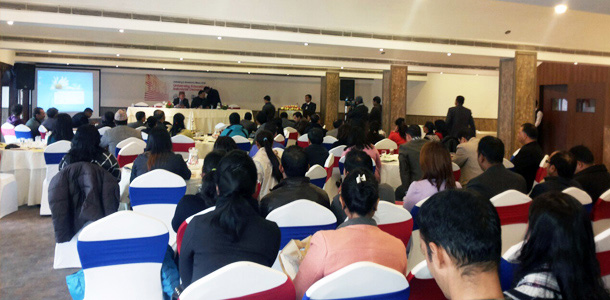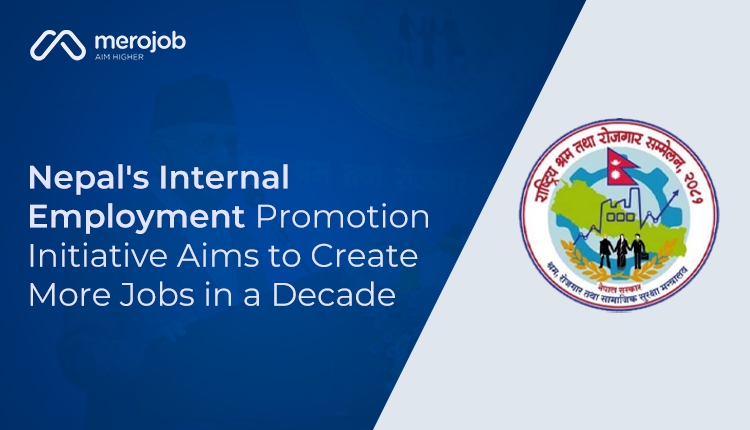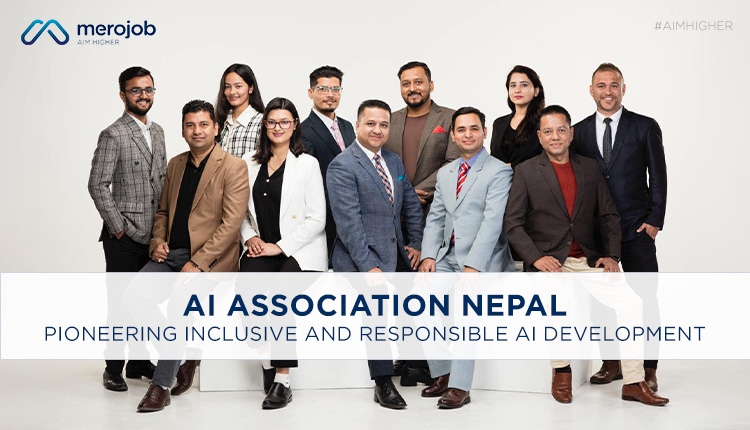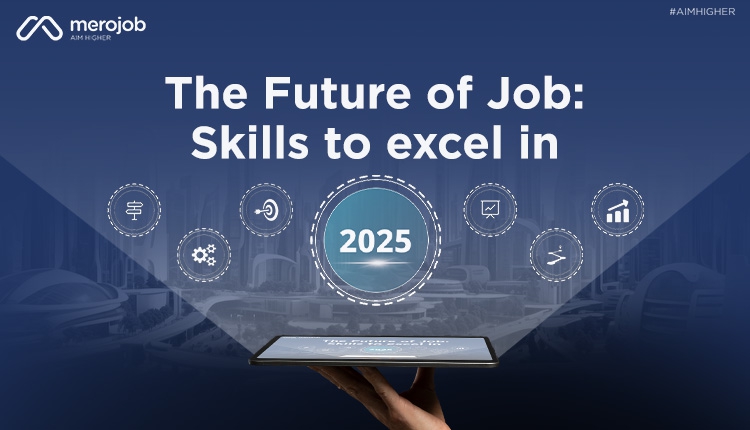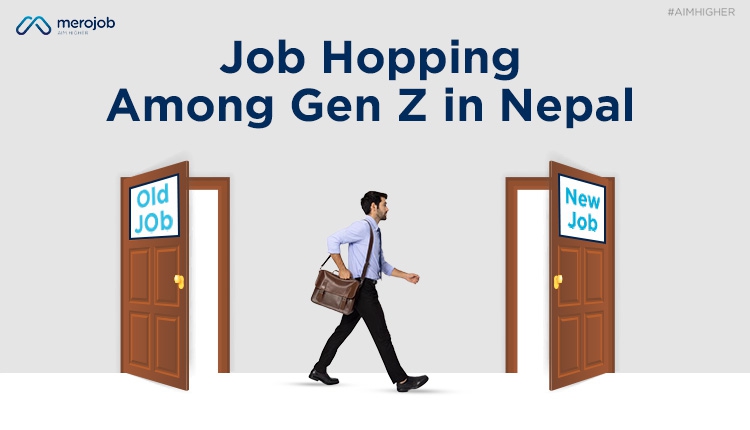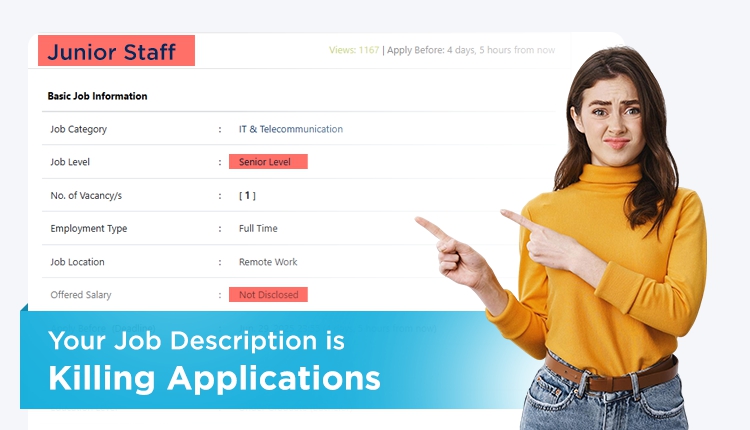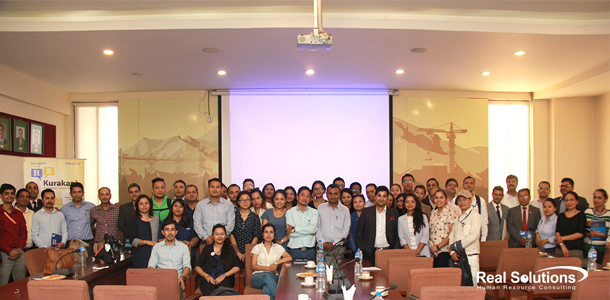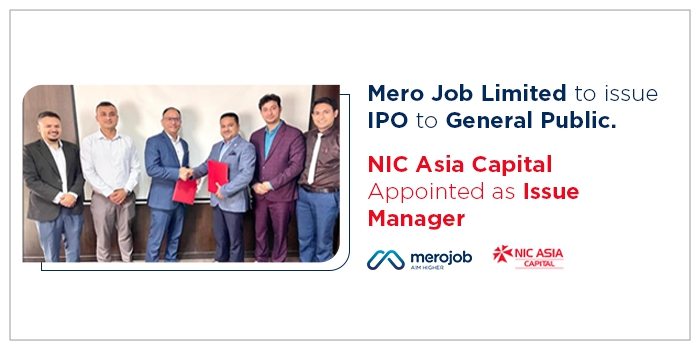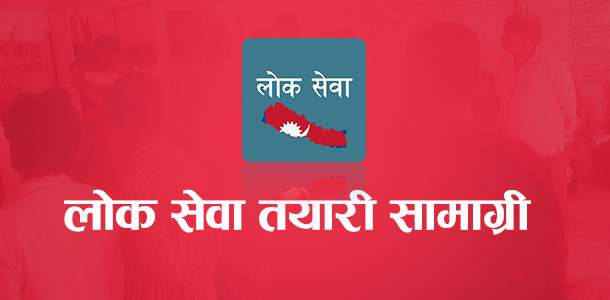The current scenario of industry revolves around the gap between the expectations of the employers and graduates. The focus of the sharing session highlighted on the reasons for this gap and the measures to overcome it. Partnership between universities and industries is very crucial for bridging this gap.
There has always been and still is the challenge to get the desired human resource in the industry. There is a need of human resources and there are also thousands of people looking for jobs. Despite of the large number of job vacancies, why is the industry facing lack of human resources? The answer here lies in the fact that, we have human resources but there is lack of well skilled human resource appropriate for the required job positions.
According to Mr. Kapil Dev Regmi, Exe. Director, KDBC, “The industry is facing the challenge to get the right person for the right position.” Along with skilled and well qualified manpower, the industry is looking for the ones who can think of ways through which they can contribute to the growth of the company.
The duties of both the university & industry is equally important in creating a quality workforce. Knowledge & education has moved toward a different direction today. “The concept of spiritual knowledge has been gaining importance in today’s context”, says Mr. Satish Kr. Ojha, Senior Academia at Don Bosco College. The bases of partnership between university & industries depends highly on assurance of Knowledge, Attitude, Skill & Hospitality (KASH) on the part of the university and the universities should provide feedback to the institutions regarding the quality and productivity of the human resource in various sectors, he added.
In context of universities in countries like USA, UK, etc. the universities are judged on the basis of the number of cited research conducted by them. The valuation of the universities depends 60% on these cited researches carried out by the universities. This helps to form and develop courses integrating local market data and information.
Similarly, if Nepal could adopt these strategies, our universities also can design courses that reflects the needs of the country. This would ultimately help in identifying the competitive advantage of the nation and work on excelling in that sector.
“Education should lead to innovation”, says Mr. Suraj Vaidya, Immediate Past President, FNCCI. And, we can see the results of education and innovation in the last decade in Nepal. Education has also developed a lot in the past decade. Compared to the past, we have more qualified and skilled human resource.
As one of the largest job provider in Nepal, he believes in recruiting Nepali citizens for his companies. “There is a need to identify the sectors that are competitive and those which are sustainable”, says Mr. Vaidya. The government needs to work with educational institutions and find out where Nepal can create jobs and entrepreneurs.
Also, innovation is the key to personal as well as professional development. The mindset of the people needs to change and move toward innovation. With a combined effort, we can create innovative people in education and through education.
Mr. Vaidya also emphasized on the need for strong dialogue between government, private sector and universities to identify the gap & the ways to fulfill it. Universities can take an initiation to facilitate these types of activities and come up with a solution.
There has also been changes in the recruitment practices in the industries today. “Recently, the job seekers were evaluated on the basis of qualification, work experience, attitude, etc. But things have changed today. Candidates are evaluated more on the basis of their creativity, challenge management skills, their ability to contribute to the company, etc.”, says Mr. Hari Bhakta Sharma, Sr. Vice President, CNI.
According to Mr. Sharma, “Basic general management understanding, ideas of global complexity that affects the business of Nepal, etc. are some of the issues the job seekers need to be aware of.” There is a need to produce graduates who can stand up to change the world, ones who can understand what they need to do and find out the ways through which they can contribute to the society to make it a better place to live in.
The industry today needs human resources who must have an attitude where they can bring change through innovation & honesty and dedication & hard work. Along with theoretical knowledge, universities should design courses such that they are exposed to on the job trainings, opportunity to learn practical knowledge, leadership and also ethics.
The discussion highlighted that change is very important to bridge the gap faced by universities and industries. Prof. Dr. Sriram B Mathe, Chairman, KDBC, elaborated on the fact that change is essential and it starts with ourselves. It is a fundamental prerequisite for long term sustainable development. “Contribution of private sector is very important and quality can improve with favorable government policies”, he added.
Mr. Kumar Joshi, President, HRN society concluded the session with brief scenario about the prevalent HR practices in the country. There is also lack of awareness regarding human resources such as human resource development, employee performance, etc.
